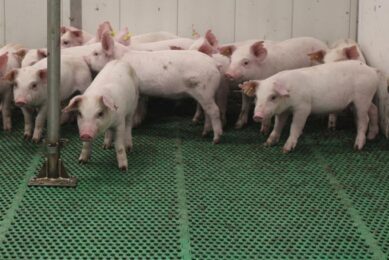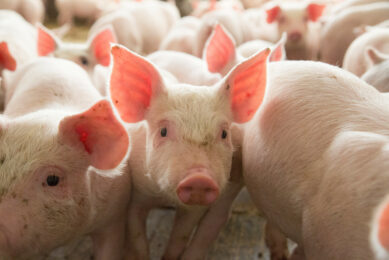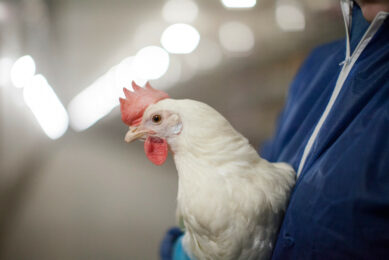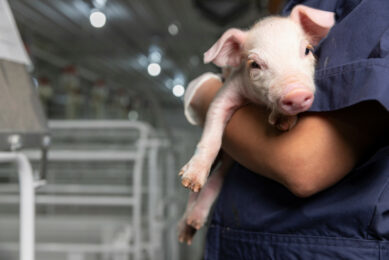Review: Sustainability on the menu at a one-off road show
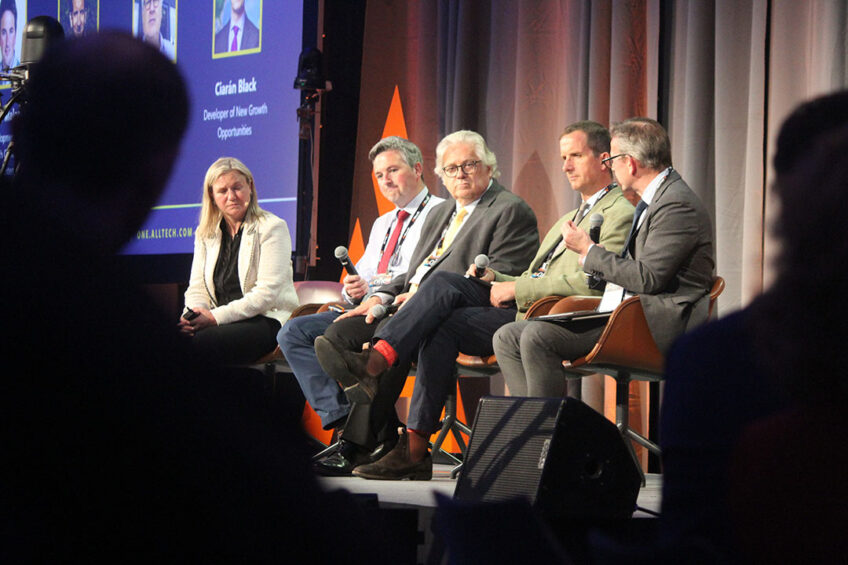
More than ever, sustainability is the main theme on which global events like to focus. In a world post-Covid-19, most players in global agriculture appear very conscious of themes like environmental pressure, climate change and agriculture’s licence to produce. The 2023 Alltech One conference, held in Dublin, Ireland on June 19 and 20, was no exception.
Normally Lexington in the US state Kentucky is the place to be when talking about the annual Alltech One event. Not in 2023 though, as the animal nutrition and health company decided to go out and about this year and reach its target audience through a series of events “on location,” with cities to be visited including Budapest, Dublin, Calgary, Washington, DC and Abu Dhabi.
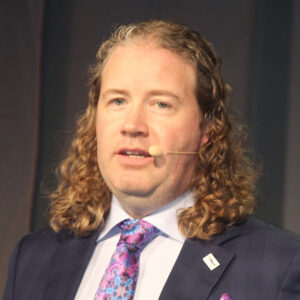 Sustainability
Sustainability
In 2023, the buzzword at many key events in agriculture is “sustainability,” and the latest edition of Alltech One fitted in well. Agriculture’s role in a changing environment was addressed by Dr Mark Lyons, Alltech president and CEO. He started off by pointing out that the world of agriculture is facing some significant challenges. Various companies in the global food and feed industry are struggling he said are struggling, and that is on top of Europe’s Green Deal, greenhouse gas targets and a general climate change.
Moving away from a sentiment of negativity, he launched a plea for “telling the story in a different way.” “We have to nourish our population and preserve the planet,” he told his audience. “It is a huge responsibility and also an opportunity.” Agriculture, in his view, is not part of the problem, but should be part any solution to create a better world. And, obviously, in his view his company has a role to play in that process.
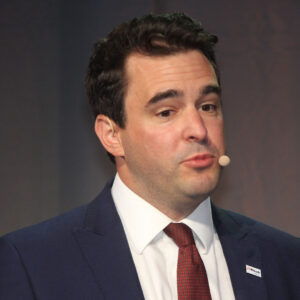 Animal production’s impact
Animal production’s impact
Fast forward to the animal track parallel sessions. Will Streatfeild, Alltech’s key account lead E-CO2 explained what kind of environmental problems could be identified in livestock production. He summed up 9 levers of change, or areas that have the potential to deliver a positive turn-around. He identified methane mitigation, productivity, herd health, feed efficiency, protein efficiency, global warming potential (GWP) of feed, soil health, green energy and sequestration. Each sector within livestock production has its own challenges and deserves its own solution as well. Streatfeild stressed however, that each lever has data at its heart, both in assessing the size of the problem, as well as in solving it.
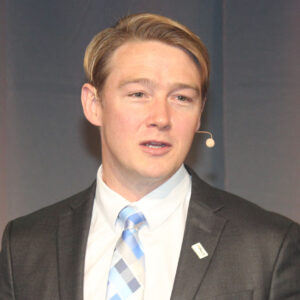 In dairy cows: reducing methane
In dairy cows: reducing methane
Very topical in Ireland in June 2023 were methane emissions by dairy cows, as the country’s government had just announced to consider reducing the country’s total by 65,000 cows per year for that reason. No surprise then that exactly “methane mitigation” was key in the presentation of Alltech’s Dr Vaughn Holder, director of ruminant research, who explained how dairy cow producers can be assisted to lower their farm’s methane emission levels. His answer: through innovative nutritional strategies. He summed up for instance:
Enzyme inhibition;
Alternate hydrogen sinks; and
Rumen modifiers.
In pig production: Feed efficiency
In pig production, not so much methane was observed to be a key issue, but on the other hand issues like “feed efficiency” are. After all, the majority of the pig industry’s carbon footprint is related to feed that needs producing somewhere. So anything that can be done to improve feed efficiency, would have an impact on the environment, Streatfeild explained.
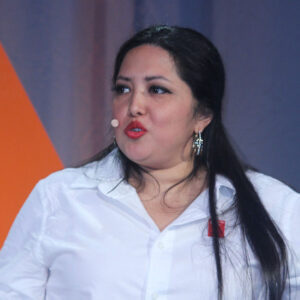 For that reason, on behalf of pig genetics company PIC, Dr Julia Adriana Calderón Díaz took to the stage to explain what the company does to include feed efficiency into its breeding goals. She identified various different definitions of feed efficiency as well as how to measure it. She concluded that the concept itself is multifactorial, taking in components of nutrition, environment, equipment management and health – and a predisposition to any of those can be selected by genetics.
For that reason, on behalf of pig genetics company PIC, Dr Julia Adriana Calderón Díaz took to the stage to explain what the company does to include feed efficiency into its breeding goals. She identified various different definitions of feed efficiency as well as how to measure it. She concluded that the concept itself is multifactorial, taking in components of nutrition, environment, equipment management and health – and a predisposition to any of those can be selected by genetics.
She said that feed efficiency has a moderate heritability of 30-40%. In PIC’s overall breeding goal, there are components as “sow herd productivity, fast and efficient growth, robustness as well as total carcass value.” All have links with sustainability and feed efficiency, she explained. She concluded her talk by pointing to the responsibility that improvement must be made across the whole production chain and long-term sustainable efficiency must incorporate robustness traits.
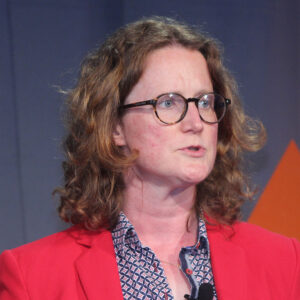 In poultry production: health issues
In poultry production: health issues
Along similar lines, Prof Fiona Walsh also tapped into “doing more with less” – and as she is a microbiologist at Maynooth University in Ireland, she focused on health issues, in more detail into antimicrobial resistance and microbiome research. She explained how much about the gut microbiome of animals has become known over the last few years, and how content can be compared, so effects of e.g. antibiotics, zinc or other virulence factors can be taken into account. She gave practical examples with research carried out with broilers and layers, where a product made of mannan-rich fractions (MRF) was tested after which effects on the microbiome were tested. Her conclusion was that MRF maintains the healthy caeca of broilers and layers, leads to greater uniformity of microbiomes and better productivity.
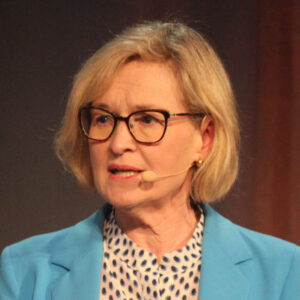 Speakers of interest
Speakers of interest
In the line-up, the event had a long list of other speakers who all had a message revolving around sustainability. Mairead McGuinness, for instance, is an Irish politician but currently serving as the European Commissioner for Financial services, financial stability and capital markets union. It is her role to make flows of money go towards the goal of sustainability.
In her contribution, she identified a conflict between citizens about how people are dealing with climate change. “We have to lead the change,” adding that the agricultural sector was ready for that. “I have yet to meet a farmer who wishes to destroy nature. […] The farmers that I know are hungry for knowledge.”
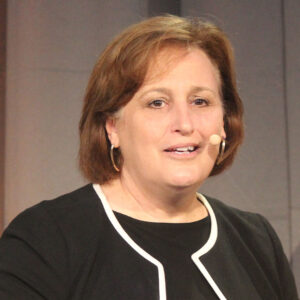 One of the last speakers of the summit was Constance Cullman, president and CEO of the American Feed Industry Association (AFIA). She broke the ice straight away by stating that “the folks in the US have no idea what is going on in the EU. […] There are incredibly innovative practices in Europe – and in the US.” She launched a plea that the US and the EU have so much in common, so both areas should get into a robust conversation asking what can be learnt from one another.
One of the last speakers of the summit was Constance Cullman, president and CEO of the American Feed Industry Association (AFIA). She broke the ice straight away by stating that “the folks in the US have no idea what is going on in the EU. […] There are incredibly innovative practices in Europe – and in the US.” She launched a plea that the US and the EU have so much in common, so both areas should get into a robust conversation asking what can be learnt from one another.



